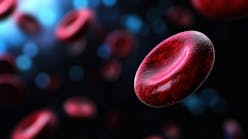A combination of two medications, injectable naltrexone and oral bupropion, was safe and effective in treating adults with moderate or severe methamphetamine use disorder in a double-blind, placebo-controlled Phase III clinical trial, according to a news release from the National Institutes of Health (NIH).
The findings suggest this combination therapy may be a promising addition to current approaches to treatment, such as cognitive behavioral therapy and contingency management interventions, for a very serious condition that remains difficult to treat and overcome. The research, published in The New England Journal of Medicine, was conducted at multiple sites within the National Institute on Drug Abuse Clinical Trials Network (NIDA CTN). NIDA is part of the NIH.
"The opioid crisis and resulting overdose deaths in the United States are now well known, but what is less recognized is that there is a growing crisis of overdose deaths involving methamphetamine and other stimulants. However, unlike for opioids, there are currently no approved medications for treating methamphetamine use disorder," said NIDA Director Nora D. Volkow, MD. "This advance demonstrates that medical treatment for methamphetamine use disorder can help improve patient outcomes."
The study, known as the Accelerated Development of Additive Pharmacotherapy Treatment for Methamphetamine Use Disorder study, or ADAPT-2, was conducted from 2017 to 2019 at clinics in multiple community treatment programs nationwide and enrolled 403 adult volunteers ages 18 to 65 years with moderate to severe methamphetamine use disorder. All participants wished to reduce or cease use of the drug and were randomly assigned to the treatment or control group.
In each of two six-week stages, volunteers in the treatment group were given an injection of extended-release naltrexone, a drug used to treat opioid and alcohol use disorders, every three weeks and took daily extended-release tablets of bupropion, an antidepressant also used as a treatment to aid nicotine cessation. Those in the control group were given matched injectable and oral placebos over the same time periods. Investigators performed four urine drug screens at the end of each stage of the trial. Participants were considered to have responded to treatment if at least three of four urine screens were negative.
Overall, participants responded at a significantly higher rate in the treatment group. When screened during weeks five and six, 16.5 percent of those given the naltrexone/bupropion combination responded, compared to only 3.4 percent of those in the control group. Similarly, when screened in weeks 11 and 12, 11.4 percent of the treatment group responded, compared to 1.8 percent of the control group. Researchers calculated that the number needed to treat (NNT) was 9. NNT is a way to describe the utility of a medical intervention that indicates the number of people who would need to receive a treatment for it to benefit one person.
Participants in the treatment group were assessed to have fewer cravings than those in the placebo group and reported greater improvements in their lives as measured by a questionnaire called the Treatment Effectiveness Assessment. Importantly, there were no significant adverse effects associated with the dual medication treatment. Adherence to treatment was encouraged by adherence counseling and mobile app reminders and remained high at 77.4 percent and 82.0 percent in the treatment and placebo groups, respectively, in the final six weeks of the study.
Research suggests bupropion may alleviate dysphoria associated with methamphetamine withdrawal by acting on the dopamine and norepinephrine systems. Alleviating dysphoria may in turn reduce cravings and help prevent return to methamphetamine use. Naltrexone may reduce the euphoric effects and cravings associated with taking methamphetamine. In previous clinical studies, however, both bupropion and naltrexone administered alone showed limited, inconsistent efficacy in treating methamphetamine use disorder. Now, in combination, these compounds seem to have an additive or synergistic effect.
While there are U.S. Food and Drug Administration-approved medications for other substance use disorders, no medications have yet received FDA approval for methamphetamine use disorder. The effectiveness of this medication combination is progress toward improving treatment of this addiction.





